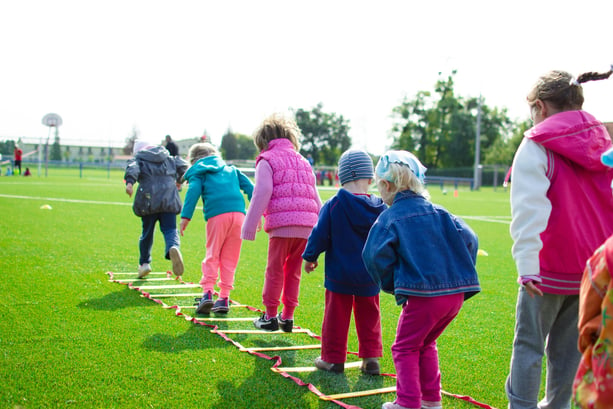Ice Breaker Activities
Explore innovative ice breaker activities and education research topics for 2025. Discover fresh ideas to engage students and enhance learning experiences in educational settings.
QUALITATIVE RESEARCH
Realyn Manalo
4/10/20253 min read


Why the Philippines’ 2025 PISA Preparation Misses the Mark?
With the 2025 PISA exams approaching, the Philippine Department of Education is racing to improve the nation’s standing. Yet, the current strategy leans heavily on last-minute, test-focused interventions that benefit only the 7,500 selected test-takers—leaving out the rest of the 28 million Filipino students. Programs include drill-based coaching, test-alike simulations, and crash reviews, which do little to address the systemic issues that led to the country’s poor performance in the first place.
But real learning is not about memorizing answers for a global exam. It begins with students feeling safe, heard, and connected in their classrooms. This is where icebreaker activities quietly become transformative. These seemingly simple games or prompts ease anxiety, foster connection, and build trust—critical ingredients for engagement and academic growth, especially in overcrowded and under-resourced public schools. In a system focused on numbers, the potential of icebreakers to boost confidence, communication, and classroom culture is being overlooked. It’s time we asked: could small moments of connection lead to bigger learning outcomes?
Who Can Use These Topics?
This research is ideal for students and professionals pursuing the following courses or strands:
College Programs:
BS in Secondary or Elementary Education
BS in Psychology (focus on developmental or educational psych)
BS in Early Childhood Education
BA in Communication (Educational or Instructional Communication track)
BS in Special Needs Education
BA in Linguistics or English Language Studies
Senior High School Strands:
Humanities and Social Sciences (HUMSS)
General Academic Strand (GAS)
Why This Topic Needs Research
Despite their growing use in classrooms, the role of icebreakers in improving engagement and communication is still under-researched—especially in Philippine contexts.
Limited studies on culturally adapted icebreakers: Madden and Robinson (2024) confirmed the value of icebreaker activities in boosting speaking skills but noted that most studies fail to examine how different cultural groups respond to varied activity types, especially in EFL classrooms.
Narrow focus on English-only contexts: Hayat et al. (2025) found that virtual icebreakers improved engagement in online English classes but recommended extending research across different subjects and grade levels to understand their broader impact on learning motivation and participation.
Lack of long-term outcome measurement: Suriyawan et al. (2025) observed short-term speaking improvements with junior high students but called for longitudinal research to determine whether consistent icebreaker use leads to sustained language gains and deeper learner confidence.
Scarcity of multi-grade level studies: Niswah et al. (2025) documented motivational boosts in Grade 2 pupils, yet emphasized the need to analyze how frequency and format of icebreakers affect students at different developmental stages.
Insufficient understanding of demographic influence: Mepieza (2024) highlighted that student mood and interaction improved with icebreakers, but future studies should investigate how age, classroom size, and cultural background influence effectiveness.
Reliance on self-reported data and short-term metrics: Sasan et al. (2023) reported enhanced classroom participation with icebreaker use but warned that few studies utilize behavioral data or explore engagement in diverse student groups over time.
Descriptive rather than outcome-focused approaches: Ramadhan (2020) detailed types of icebreakers used by pre-service teachers but found that very little research assesses how different strategies affect actual learning and retention, especially in real classroom settings.
Feasibility & Challenges by Target Group
Get Your Free Thesis Title
Finding a well-structured quantitative research topic can be challenging, but I am here to assist you.
✔ Expertly Curated Topics – Not AI-generated, but carefully developed based on existing academic studies and research trends.
✔ Comprehensive Research Support – Includes an existed and updated research gaps, explanation of variables as well as SDG relevance.
✔ Personalized for Your Field – Get a thesis title tailored to your academic requirements and research interests.
Prefer video content? Subscribe to my YouTube Channel for expert insights on research topics, methodologies, and academic writing strategies.
References
Hayat, U. A., Riyadi, S., & Sulistio, P. H. (2025). The The Effectiveness of Virtual Ice Breaker Strategy to Improve Students’ Speaking Skill in Online Learning. LEAD (Language, Education and Development), 3(2), 58-70.
Madden, N. O., & Robinson, R. R. (2025). Using an innovative icebreaker in EFL classes to assess and enhance students’ speaking competence. International Journal of Language Instruction, 4(1), 1-19.
Mepieza, R. Y. (2024). Impact of Icebreakers on Student Participation and Engagement in the Classroom. European Journal of Learning on History and Social Sciences Volume, 1(1).
Niswah, R., Bujuri, D. A., Lamsari, A., & Wardani, F. P. (2025). An Effort to Increase Students' Learning Motivation Using Ice-Breaking Techniques in Class II: A Service in SD Negeri 09 Indralaya. Jurnal Pengabdian Cendekia, 1(1), 25-28.
Ramadhan, M. Z. (2020). The Use Of Ice Breakers By Pre-Service Teachers During Peer-Teaching Practicum In Private University.
Sasan, J. M. V., Tugbong, G. M., & Alistre, K. L. C. (2023). An exploration of icebreakers and their impact on student engagement in the classroom. Science and Education, 4(11), 195-206.
Suriyawan, T., Yolanda, A., & Yassin, M. (2025). The Effectiveness Of Using Ice Breaking In Teaching Speaking At Students Of Junior High School. Jurnal Jendela Pendidikan, 5(01), 87-94.
